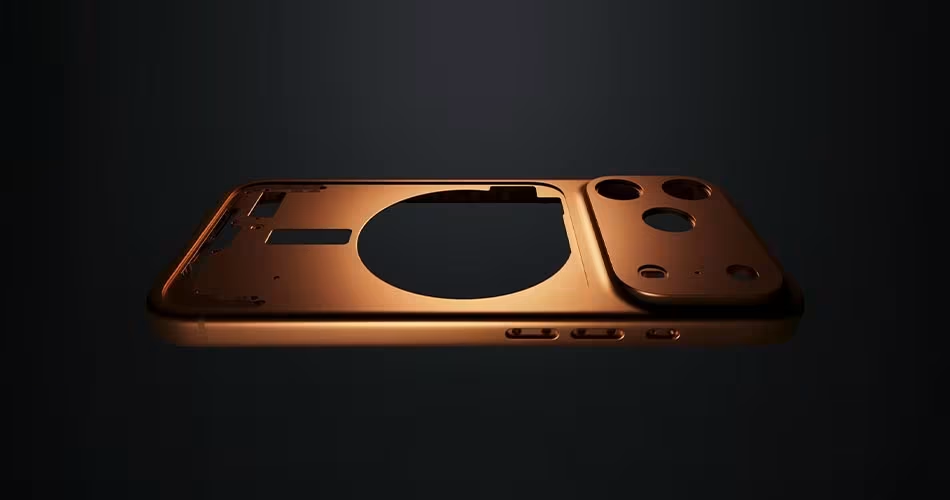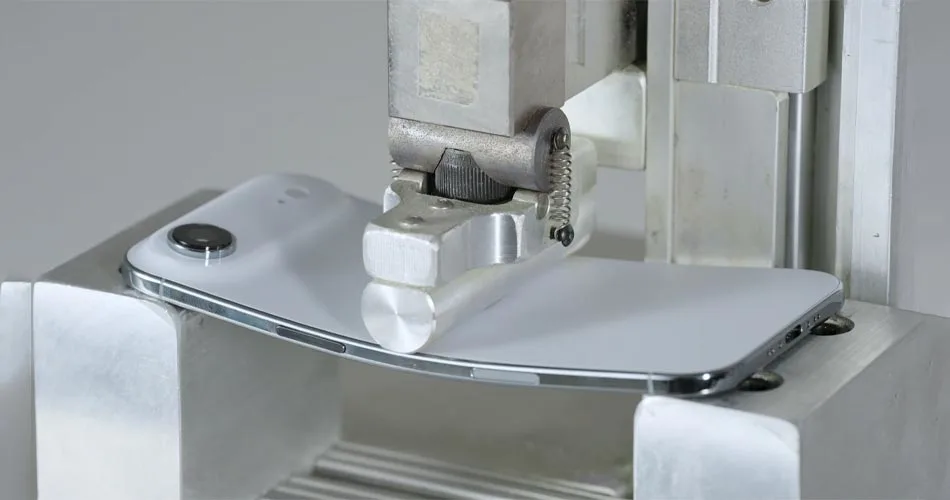Apple loves to talk about “stronger than ever” materials with every iPhone launch. This year, the iPhone Air and iPhone 17 Pro bring a mix of titanium and aluminum plus Apple’s new Ceramic Shield 2.
But how much does that marketing hold up in the real world? Thanks to Allstate Protection Plans and their latest round of bend and drop tests, we’ve got a clearer picture. The good news: durability is better than last year. The bad news: no iPhone is invincible.
Bend Test Results
The ultra-thin iPhone Air (5.6mm) surprised me. With a titanium frame, it bent only after 190 pounds of pressure which is almost double the “bendgate” iPhone 6 Plus, which folded at 90 pounds.
The iPhone 17 Pro’s aluminum frame took a little more at 200 pounds, while the larger iPhone 17 Pro Max was the real tank, bending only at 240 pounds.

So yes, thin doesn’t automatically mean fragile anymore, and Apple deserves credit for making the Air this durable. Still, for anyone who throws their phone in a back pocket, these numbers should be reassuring but not an invitation to test them yourself.
Drop Test Findings
Here’s where things get less impressive. Both the Air and the 17 Pro shattered from a six-foot face-down drop, even though the phones kept working. Sharp glass edges aren’t exactly user-friendly, and this is where Apple’s “Ceramic Shield 2” still feels like marketing spin. It’s tougher, sure, but it’s still glass.
The iPhone 17 Pro’s aluminum frame helped it hold up better in back-down drops, where it walked away with just scuffs. The Air, meanwhile, cracked its rear panel. Usable, yes. Pretty? Not so much.
On the bright side, both models outlasted last year’s iPhone 16 Pro Max, which shattered front and back so badly it wasn’t safe to use after a single drop.
The Reality Check on Ceramic Shield 2
Apple keeps tweaking its glass formula, but at the end of the day, it’s still breakable. The marketing makes it sound like superhero material, but drop it face-down on concrete, and you’re still shopping for a repair or a new case. This year’s tests prove it’s an improvement, not a miracle.
Water Resistance Is Basically Solved
Both phones keep the same IP68 rating as before, handling up to 30 minutes at a depth of 19 feet. Testers don’t even bother dunking iPhones anymore, it’s that reliable.
The 404 Take
The iPhone Air shows that thin phones don’t have to be weak, and the iPhone 17 Pro continues Apple’s trend of sturdier aluminum builds.
But here’s the truth: if you were hoping the new Ceramic Shield 2 made cases obsolete, think again. Apple’s marketing wins some points, but real-world tests show these phones are still glass sandwiches that can crack on impact.
So, if you’re planning on rocking your shiny new iPhone without a case, the science says: don’t.







Comments